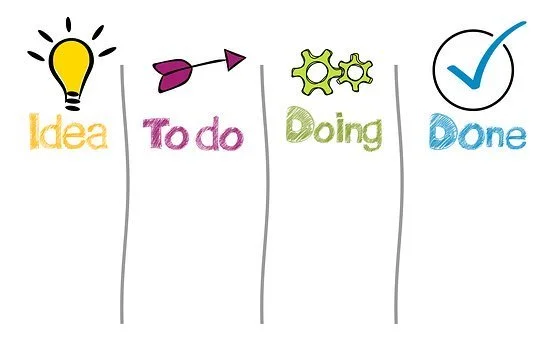Top Tips for Making HR Plans (Copy)
In our working lives we are so used to planning ahead - whether that is booking meetings in our calendar, having a To Do list, making use of planning apps such as Trello or Todoist, thinking ahead to our annual leave plans 😎 or, at this time of year, making New Year plans and resolutions.
Planning is nothing new. But, for me, and, I believe, many others, Covid made us think again. We realised we hadn’t left much space for the unexpected, we’d forgotten the personal element of our plans, and we still want to make sure we don’t fall into the same traps.
There’s a saying “The best time to plant a tree is twenty years ago. The second best time is now”. So, now is a good time to start planning for the time ahead to support our success going forward. And, as uncertainty can be so stressful, having a plan, any kind of plan, will be of benefit - we just have to remember to incorporate some capacity for flex and change.
So, here’s my top tips for work planning…..
Be realistic but aspirational
There needs to be a balance between not planning enough so lacking in motivation or development and planning so much there’s overwhelm. And, of course, we need to leave space in our plans for the “unexpected”. By “unexpected” I mean the ad hoc / on demand work that is typical of our HR profession…we don’t know what it will be but we know there will be some at some point. After all, that is why every HR job role includes “flexibility” and “resilience” in amongst the key skills required!!
One way I have found useful to leave space for the ad hoc HR demands is to split my plans in to essential and desirable goals i.e. what cannot be put off and what I can deliver when there’s capacity.
Manage stakeholder expectations
Consider what your organisation needs from HR as well as your team, who are the stakeholders for your plans? And whilst I don’t necessarily advocate for doing everything your CEO wants, it is worth making her/him feel listened to and your business to feel HR is part of them rather than just a support service.
And, of course, its always useful to remind stakeholders of the successes you’ve already delivered when asking for more budget or resources!
Support yourself and your team
You and your team cannot be expected to deliver on plans if you’re all stressed and on the edge of burnout. So, make sure your plans are realistic, that you and your team have the right amount of skills, stretch and/or training to deliver the plans, and that you’ve built in time for the day job that will still need to be delivered.
Have good quality HR data for your plans
Whether its for deciding on priorities (essential or desirable?) or providing evidence for stakeholders for your plans, accurate and up to date data is crucial. Data also helps to know who is doing ok in your team and who may be struggling.
Does your data include legacy arrangements, are you comparing like for like between teams or locations, do you have a single source for your information, are there gaps in your data, and so on?
And if you don’t have good quality HR data in your organisation, maybe that needs to be a priority in your plans?
If you feel you’d benefit from more support in your HR plans, please get in touch with me. I can provide a free sounding board with no obligation or, if you’d prefer, we can discuss your plans and any costs for me to support in improving your data, helping your team find time and delivering your projects.




